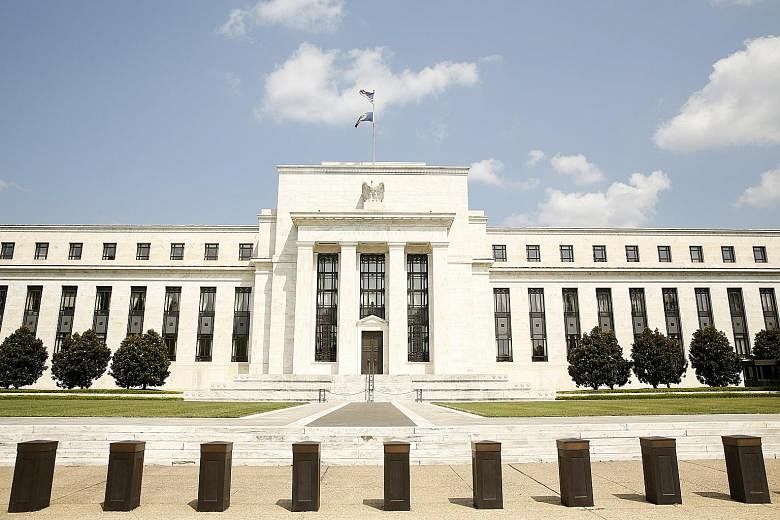Until recently, some major global markets had gone an unusually long time without a meaningful correction. In recent months, investor uncertainty had gotten very elevated and it is likely many investors were waiting for a reason to sell following a protracted rally.
The latest downturn in China's highly leveraged, speculation-prone market has provided that reason, sparking fears about broader-based emerging market instability and global growth headwinds, as seen in tumbling commodity prices.
While the situation remains volatile, we would note that fundamentals in key major economies remain supportive and we are still finding selectively attractive investment opportunities at the bottom-up level.
The US economy is still far from a recession and recent corporate earnings reports have been largely positive. In Europe, euro zone manufacturing data has been holding steady, corporate earnings have been improving and credit demand has been picking up.
In Asian and emerging markets, commodity producers are bearing the brunt of the downturn, but attractive values persist among well-capitalised, well-managed enterprises with good exposure to secular growth trends.
More broadly, we think recent selling pressure could mark a transition away from the market's growth-oriented phase. Since the global financial crisis, growth stocks have outperformed value stocks for an unusually long stretch, In fact, this period marks the longest duration of value underperformance on record.
Historically, the outperformance of value has been associated with a rising interest rate environment.
As the US Federal Reserve Board (sometimes referred to as "the world's central bank" for the far-reaching impact of its policies) attempts to begin raising rates, we see a potential catalyst for a value recovery over our long-term investment horizon.
ADRIFT IN THE VALUE DOLDRUMS
At Templeton, we see a strong case for value investing in today's challenging environment. The late John Templeton once described his investment process as "search(ing) for areas that are unpopular, and then study(ing) to see if that unpopularity is permanent". There is no doubt that value investing today is deeply unpopular.
Value as a style is plumbing the depths of its longest stretch of underperformance on record. Of equal interest to contrarian investors, data suggests that value-oriented stocks look historically cheap relative to their growth-oriented peers.
In fact, at a 75 per cent discount to growth on price-to-tangible book value two standard deviations below the average long-term level-value hasn't been this cheap relative to growth since the peak of the "dot.com" bubble.
But, is this unpopularity permanent? History would suggest no. Value has always recovered and, over time, outperformed.
We are optimistic that any nascent change in market trends could be supportive over a long-term investment horizon for our team's value-oriented approach. We also think of value as a forward-looking concept, as opposed to a static or backward-looking valuation multiple. This approach to value investing tends to distinguish our portfolios from an index-based approach, often giving us exposure to stocks that might traditionally be classified as "growth".
Ultimately, we are not too preoccupied with style labels such as "growth" and "value". Mr Templeton cared far less about the rate of expected earnings growth than he did about the price he was paying for those future earnings.
VOLATILITY CREATES LONG-TERM VALUE OPPORTUNITY
A value recovery is by no means the consensus expectation and, admittedly, current conditions appear outwardly hostile to value. So much industrial capacity was added to the global economy in this China-driven, debt-fuelled, technology-enhanced business cycle that it is taking a long time for demand to recover to capacity clearing levels.
In our view, the ultimate impact of these forces is deflationary and, against the backdrop of falling yields and lower investment returns, investors have been willing to pay up for growth.
At some point, investors will probably pay too much for the perceived certainty of growth. Yet, the consensus appears to have accepted the current tepid economic environment as the new normal, affording a major scarcity premium to those companies that have demonstrated strong near-term revenue growth. We believe this historic growth premium is unsustainable.
To the extent that extreme bearishness persists in the near term, its impact on global equities may be fairly indiscriminate and we would expect our portfolios to weather some temporary volatility. Yet, as Mr Templeton once advised: "To buy when others are despondently selling and to sell when others are avidly buying requires the greatest fortitude and pays the greatest ultimate reward."
We will remain disciplined in our time-tested investment process and use despondent selling to create long-term value for our clients. For patient investors, we believe the potential recovery in value represents the most attractive contrarian investment opportunity in today's market.
•Norm Boersma, CFA is the chief investment officer at Templeton Global Equity Group.

